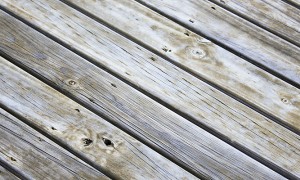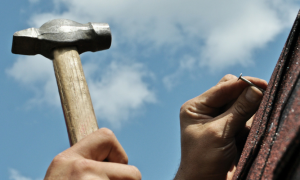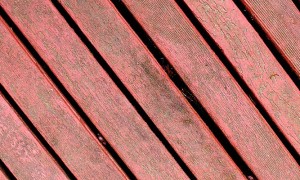Synthetic Decking: A Good Choice for Jacksonville Homes?
Sun and moisture in the Florida environment break down wood decks, requiring them to be replaced every 10 years or so. Synthetic decking or composite decking looks as good as traditional wood, but lasts much longer.
With warm afternoons and evenings at least 10 months of the year, it’s only natural that a good number of Jacksonville homes have a deck in their backyard. Whether it’s designed as a small barbecue area or is an elaborate outdoor room, traditional wooden decks need to be refinished every couple of years and replaced once every decade.
The next time you upgrade your backyard deck, consider using synthetic decking instead of wood. It looks as attractive as traditional materials, and it resists dirt, peeling, splinters, and rot. Manufacturers have created two different types of synthetic decking material: composite decking and PVC decking. Both last longer than wooden decks, but there are significant differences.
PVC Decking
PVC decking has come a long way from the days when it looked like plastic toy parts. Today’s improved materials look and feel like real wood, but never break down in the hot Florida sun. Replacing your deck with PVC won’t cause problems such as splinters, fading, weathering, or loss of finish. Traditional wooden decks need to be cleaned once a week, but hosing twice a year is enough to keep PVC decks looking fresh and new.
In addition to its resilience, PVC decking is easier to install. Wood can bend and warp, and human error can introduce size variations in planks that are supposed to be identical. With synthetic planking, every piece is made in a factory, and each one is the perfect size for your deck project.
Composite Decking
Composite decking is a hybrid between traditional wood and PVC. Ground bits of wood and PVC chips are pressed together to make artificial boards for decking. These boards have the advantage of looking like real wood without suffering from real wood’s quick decay. These composite decking boards resist rot, splintering, and fading just as well as PVC boards. However, they have one definite disadvantage.
In Florida’s humid air and frequent rainstorms, composite decking is vulnerable to mold, even more than some wooden decking materials. The covering of these boards have microscopic holes. When moisture gets into these holes, the mold spores that are so common in Florida air can set up home inside the boards and begin to grow. Their distinctive black and gray spots can be seen on the ends of the boards and on the top and bottom surfaces. Composite decking may be an attractive decking alternative in most of the country, but in the Jacksonville area, it makes more sense to use PVC decking material instead.
[cf]skyword_tracking_tag[/cf]




